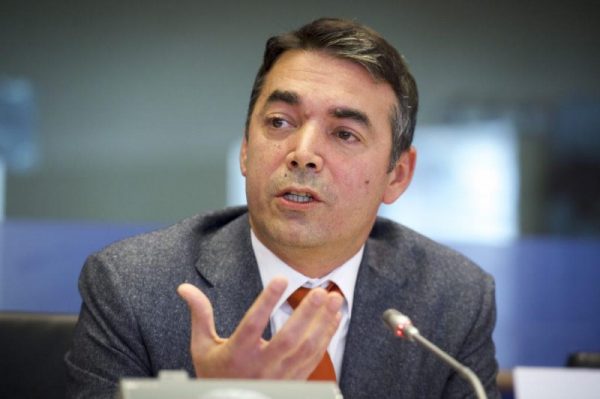Delaying the start of EU accession talks with North Macedonia creates a problem of the credibility of the European Union and this is reflected not only in our case, but in the whole region, Deputy Prime Minister for European Affairs Nikola Dimitrov said addressing the online conference entitled “How to get EU enlargement back on track? Prioritising rule of law and judicial reform.”
The kick-conference to the three-year EU project Western Balkans 2 EU, funded by the Erasmus+ Jean-Monnet Network of the European Commission, was held at the invitation of several think tank organisations from the region and the EU, the Secretariat for European Affairs said in a press release on Thursday.
In this regard Dimitrov spoke about the challenges on EU integration path underlining that this year, North Macedonia marked two decades since it signed Stabilization and Association Agreement and we marked 16 years as a candidate country.
“We waited because we had an issue with our neigbours in Athens, we resolved it. Then there was issue with the trust in the accession process itself, so we had to wait for the new methodology. Then we follow the words of the Councill in June 2018 that the path will be paved to start accession talks in June 2019. In June 2019 the Councill said we will revert to the matter in October 2019 then finally we got the green light in March 2020 at the start of this horrible COVID-19 pandemic, but the EU was not able to deliver on that decision which in our case was not preconditioned with concrete reforms steps. So, I think that there is an issue with the credibility on the part of the European Union and this reflects not only in our case but also the entire region,” Dimitrov said.
Dimitrov also referred to the issue of politicizing bilateral issues through the negotiation process.
Political hijacking of the process on bilateral issues has always been an issue and it undermines conditionality, which is precondition for success in the accession processes – in delivering results by both sides. In particular bilateral issues that are against some of fundamental principles and values such as linguistic and cultural diversity on our continent. It’s not a territorial dispute and it’s not a matter of closing down a nuclear plant, but our right to self-determination. I am a Macedonian and should not choose between being Macedonian who speaks Macedonian language and becoming European in terms of being part of the EU,” Dimitrov noted.
Dimitrov also said that North Macedonia will not be focused only on removing obstacles, but will remain committed to the reforms of the first cluster – based on Agenda: Europe at home, which actually covers the priority requirements of the citizens themselves.
Katarina Barley, Vice President of the European Parliament and Karoline Edtstadler, Federal Minister for EU and Constitution of Austria also took part in the conference, the press release reads.















